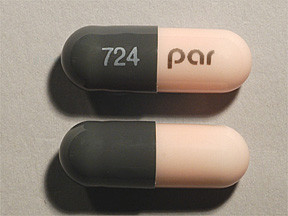HYDROXYUREA - ORAL
PHONETIC PRONUNCIATION: (hi-DROX-ee-you-REE-uh)
COMMON BRAND NAME(S): Droxia, Hydrea
GENERIC NAME(S): hydroxyurea
Uses
USES: This medication is used in people with sickle cell anemia to reduce the number of painful crises caused by the disease and to reduce the need for blood transfusions. It is also used to treat several types of cancer (such as chronic myelogenous leukemia, squamous cell carcinomas).
How to use HYDROXYUREA - ORAL
HOW TO USE: Read the Medication Guide if available from your pharmacist before you start taking hydroxyurea and each time you get a refill. If you have any questions, ask your doctor or pharmacist. Take this medication by mouth with or without food, usually once daily or as directed by your doctor. Swallow the capsules whole. Do not crush, chew, or open the capsules. Wash your hands after taking this medication. Dosage is based on your weight, medical condition, laboratory test results, and response to treatment. Your treatment may be stopped for a short time if your blood counts are too low. Keep all medical and laboratory appointments. Do not increase your dose or take this medication more often than prescribed. Your condition will not improve any faster, and the risk of serious side effects may be increased. Caregivers should wear disposable gloves when handling this medication or its container. If the powder inside the capsule spills, wipe it up with a wet paper towel and immediately dispose of the towel in a closed plastic bag. Make sure not to breathe the powder from the capsules. Wash hands after handling the medication. Since this drug can be absorbed through the skin and lungs, women who are pregnant or who may become pregnant should not handle this medication or breathe the dust from the capsules. Tell your doctor if your condition does not improve or if it worsens.
Side Effects
Precautions
Interactions
Overdose
Images
Reviews
Faq for HYDROXYUREA - ORAL
Hydroxyurea is used to treat certain types of cancer, such as chronic myelogenous leukemia, certain types of head and neck cancer, and sickle cell disease.
Hydroxyurea works by slowing down the growth of cancer cells or abnormal cells in the body. In sickle cell disease, it increases the level of fetal hemoglobin, which helps in the management of the disease.
Common side effects of hydroxyurea include nausea, vomiting, diarrhea, loss of appetite, mouth sores, skin rash, dizziness, headache, and hair loss. These side effects usually improve with time.
The effects of hydroxyurea may be seen within a few weeks to a few months, depending on the condition being treated. It is important to take the medication as directed by your healthcare provider and attend regular check-ups to monitor the effectiveness of the treatment.
Hydroxyurea should not be used during pregnancy as it may harm the unborn baby. It is important to use effective birth control methods while taking hydroxyurea and to discuss any pregnancy plans with your healthcare provider.
Hydroxyurea can be used in children to treat sickle cell disease, but the dosage and administration should be determined by a pediatric hematologist or healthcare specialist experienced in treating pediatric patients.
It is not recommended to consume alcohol while taking hydroxyurea as it may increase the risk of certain side effects, such as liver damage.
If you miss a dose of hydroxyurea, take it as soon as you remember. However, if it is close to the next scheduled dose, skip the missed dose and continue with your regular dosing schedule. Do not double the dose to make up for a missed one.
It is important to inform your healthcare provider about all the medications you are currently taking, including prescription drugs, over-the-counter medications, and herbal supplements. This will help to avoid any potential drug interactions with hydroxyurea.
Warning
WARNING: This medication decreases bone marrow function, an effect that may lead to a low number of blood cells such as red cells, white cells, and platelets. This effect can cause anemia, decrease your body's ability to fight an infection, or cause you to bruise or bleed more easily. Tell your doctor right away if you develop any of the following symptoms: signs of an infection (such as sore throat that doesn't go away, fever, chills), easy bruising/bleeding, pale skin, unusual tiredness. Hydroxyurea may cause other cancers (such as secondary leukemia, skin cancer). Protect your skin from the sun. Avoid prolonged sun exposure, tanning booths, and sunlamps. Use a sunscreen and wear protective clothing when outdoors. Consult your doctor for more details. Tell your doctor right away if you notice any symptoms of cancer, including swollen glands, sudden weight loss, night sweats, and unusual skin growths/moles.
Disclaimer
IMPORTANT: HOW TO USE THIS INFORMATION: This is a summary and does NOT have all possible information about this product. This information does not assure that this product is safe, effective, or appropriate for you. This information is not individual medical advice and does not substitute for the advice of your health care professional. Always ask your health care professional for complete information about this product and your specific health needs.


No Reviews Yet